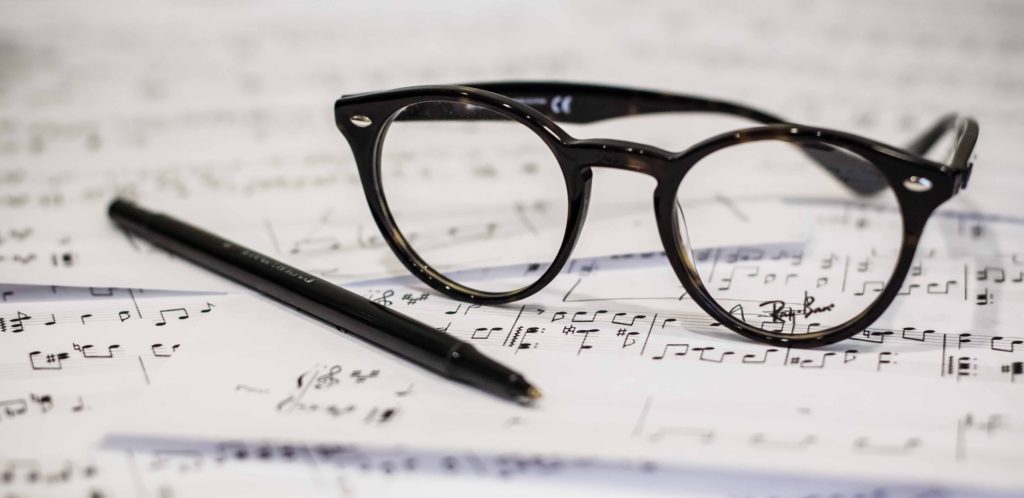
“ . . a student cannot at first understand what he needs to learn,
can learn it only by educating himself,
and can educate himself only by beginning to do what he does not yet understand”.
Educating the Reflective Practitioner, Donald A. Schon (P.93)
When I first read this quote, I had to go back over it a few times to get it to sink in. Many times while teaching, I feel like my students are just waiting for me to tell them what to learn, for me to tell them how to learn, and for me to tell them how they can show understanding
How do I actively engage students in lifelong music learning and participation?
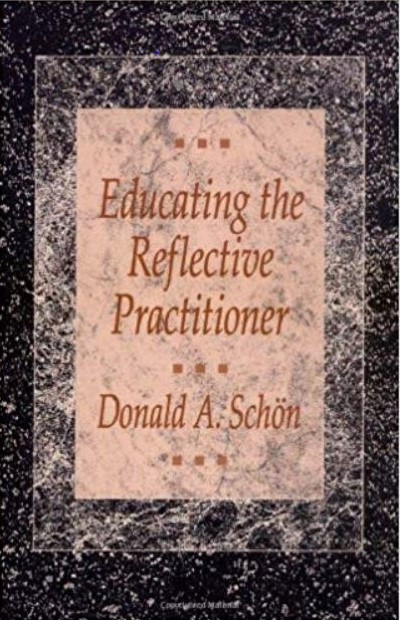
In his book, Educating the Reflective Practitioner, Donald Schon discusses several strategies that are very relevant to engaging our students in the learning process. After reading chapter two: Teaching Artistry Through Reflection-in-Action, I realized that Reflection-in-Action is what many of us do naturally as we teach. When I taught K-5 general music on a six-day rotation, many times my lessons on day one evolved and looked much different than the lesson I taught on day six of the rotation.
Why? Because if an activity/procedure failed, I would say to myself: “Well that bombed, what else can I try?”. This is the idea behind Reflection-in-Action – it is our ability to reflect, adapt, and initiate new strategies while teaching.
With this in mind, I incorporate and communicate the following steps to my students as we engage in an activity:
- Reflection-in-Action – During the lesson, and without interrupting the process, be aware and reflect on the activity and its present outcome. Focusing on the present and not the anticipated result, gives us the ability to adapt and adjust while teaching.
- Initiate a Discipline – When my students get stuck with a concept or skill, we go back to the basics. We follow the specific rules and procedures that I have set to reach the desired outcome.
- Soften the Discipline – Once the initial skill is practiced and integrated into the activity, we then soften the disciple and only use the skill sparingly.
I now teach the students this three-step learning procedure as we focus on specific concepts and skills. For example, I use Reflection-in-Action in the beginning of our voice lessons as we warm up with sight reading exercises using standard written exercises or Sight Reading Factory.
INITIAL SIGHT-SINGING PROCEDURE:
- Reflection-in-Action – Sing through an eight-bar sight-reading example and ask the students to reflect on their performance: “How can we be more successful?”
- Initiate a Discipline – Write in visual reminders: all solfege and all rhythm.
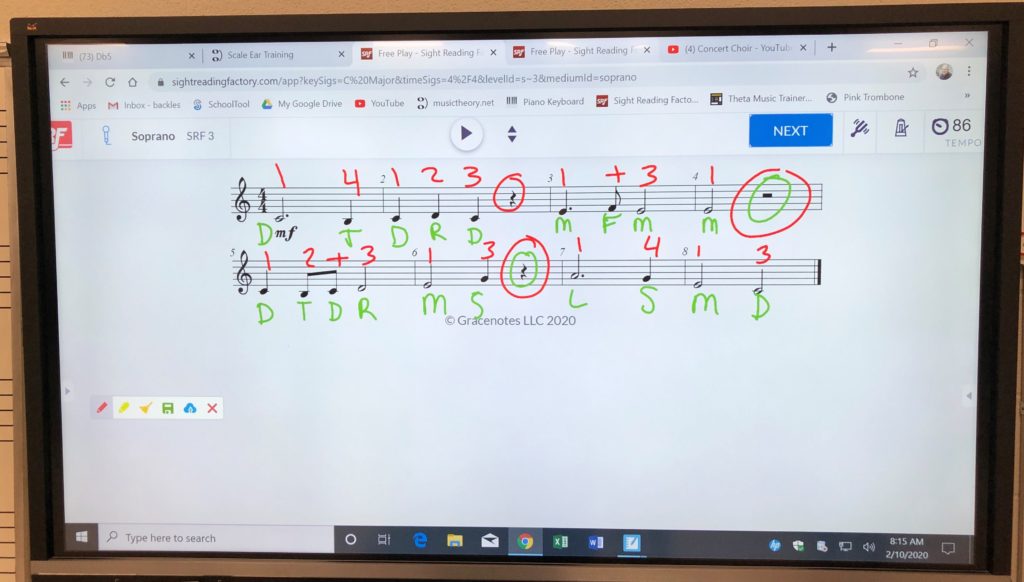
EXTENDED SIGHT-SINGING PROCEDURE:
- Reflection-in-Action – Sing through a new example and ask the students to reflect on their performance: “What/where are the trouble spots?”
- Soften the Discipline – Write visual reminders for the challenging sections: solfege and/or rhythm.
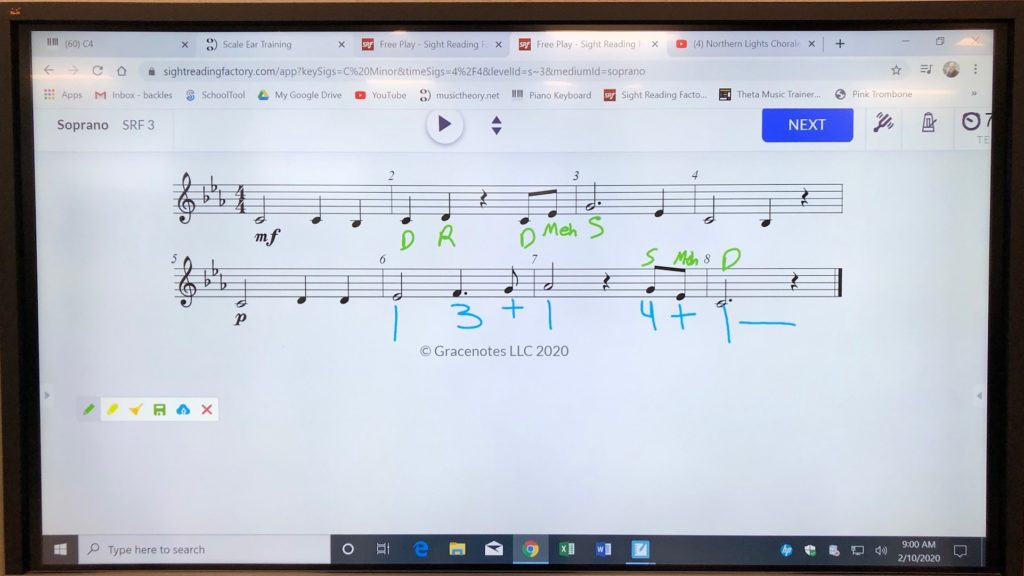
Sing through the same exercise and ask the students “Where you successful?”
Now take the formula used for sight-singing from the example above, and apply it to other concepts and skills:
- Reflection-in-Action – activity/concept ______________________________
- Initiate a Discipline – write/perform/etc. ______________________________
- Soften the Discipline – write/perform/etc. _____________________________
I used the same formula to lose a little weight . . . . .
- Reflection-in-Action – I would like to be healthier
- Initiate a Discipline – Eat Keto, no carbs (I love bread)
- Soften the Discipline – OK, a wrap and M&M’s once and a while.
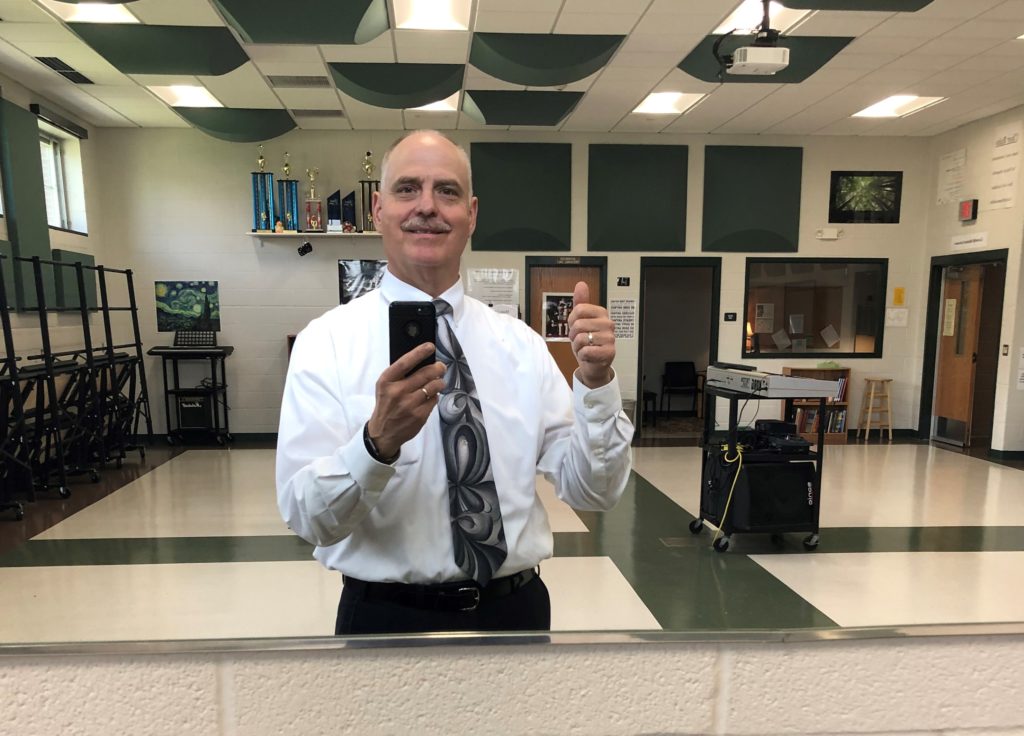
Conclusion: The Paradox of Learning
Reflection-in-Action is a process many of us were trained to use, and is just good teaching. The big take away is to share the learning procedures with your students, and encourage them to understand that:
“ . . . a student cannot at first understand what he needs to learn,
can learn it only by educating himself,
and can educate himself only by beginning to do what he does not yet understand”.
Resources
Schön, Donald A. Educating the Reflective Practitioner. San Francisco: Jossey-Bass A Wiley Imprint, 2016.

+(1).gif)
Leave a Reply
You must be logged in to post a comment.